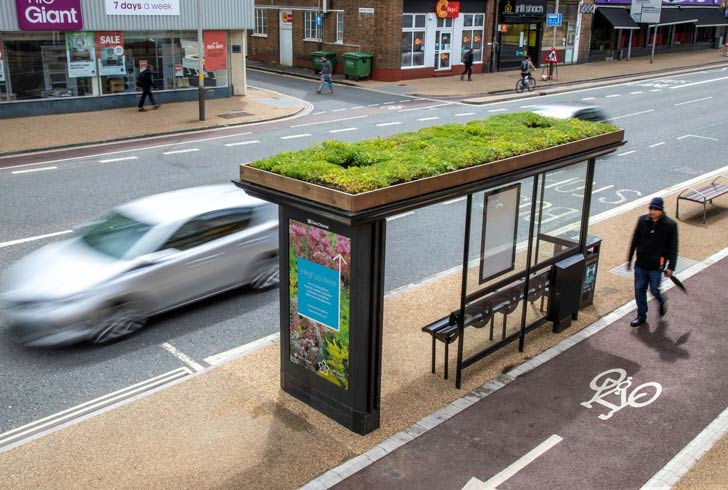First US City Starts Planting Green Roofs on Bus Stops
- Editor OGN Daily
- Sep 22, 2025
- 2 min read
These installations were first popularized in the Netherlands, which has almost 1,000 of them. They have been sprouting across Europe, as well as in Japan, Singapore and Canada, among other countries.

Now they have made their way to America, as Boston, Massachusetts has now installed its first 30 green bus shelters. It’s a remarkably simple idea: Use the roof of a no-frills bus stop to offset the heat-island effect in urban areas devoid of trees, provide direct shade at bus shelters, help reduce flooding, improve biodiversity of native pollinators, and see something rather more joyful on the daily commute.
Furthermore, these 'living roofs' can add up to a significant surface area. If Boston installed living roofs on all 8,000 of its bus stops, the city estimates it would amount to 17 acres of green space, or about 13 football fields. The Washington Post describes the bus stops as living advertisements for incorporating nature into the built environment.
Boston’s living roofs are composed of panels of structural roof decking, under layers of drainage. On top is a thin layer of soil where plants like Sedum and native pollinator plants will grow, species that are both drought-tolerant and able to adapt to Boston’s winters. Whilst it's too early to discover the positive impact such shelters may have in the city, evidence from elsewhere is extremely promising for both human and wildlife citizens of a metropolis.

Across the Netherlands, green bus shelters were installed to address a declining bee population - as part of the 2021 Dutch national bee strategy - becoming known as 'bee lines'. With consistent sources of food for the pollinators, the population is happily recovering, according to a “national bee census” published earlier this year.
Studies in Montreal, Canada have also used thermal-imaging cameras to prove that a bus shelter with a green roof is significantly cooler than one without, leading to similar installations in Quebec.
As Boston’s 30-location pilot project will continue to be maintained and monitored for its impact on heat, air quality, stormwater management, and biodiversity, city stakeholders are hopeful. And other US cities are considering installing them too.
Game Changing 'Superfood' is Good News For Honeybees: Anything that's good for honeybees is good news for humanity too, as they are a vital part of food production and contribute to pollinating 70 percent of leading global crops.
How to Encourage Pollinating Bees Into Your Garden: Bees are the most prolific pollinators on the planet and every gardener’s best friend. The majority of flowering plants in the world need the help of pollinating animals like bees to reproduce, so we should all be doing everything we can to give them a hand.



